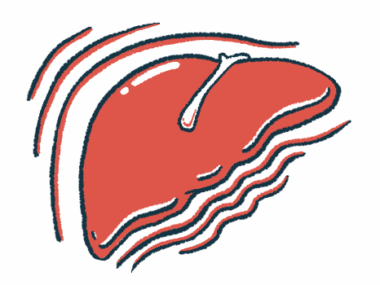AURORA Phase 2 trial of bitopertin for EPP still seeks US participants
Study looks to enroll up to 75 adults at several sites
Written by |

Enrollment is still underway in the Phase 2 clinical trial AURORA for bitopertin as a potential disease-modifying treatment for erythropoietic protoporphyria (EPP).
AURORA (NCT05308472), which launched in October, is seeking to enroll up to 75 adults with EPP at several sites in the U.S.
Meanwhile, data from the the open-label Phase 2 clinical trial BEACON (ACTRN12622000799752) of bitopertin for EPP and X-linked protoporphyria (XLP) are expected in the coming months. BEACON launched in Australia last summer.
Disc Medicine is developing bitopertin for porphyria and other blood disorders. The experimental oral treatment earned orphan drug status in the U.S. for EPP last year and has been recommended for a similar designation in Europe. Orphan drug status comes with financial and regulatory support to help accelerate the development of therapies for serious and rare diseases.
“2022 was a year of transformation and tremendous achievement for Disc,” John Quisel, PhD, the company’s president and CEO said in a press release. “We look forward to another exciting year in 2023.”
All porphyria types, including EPP and XLP, are caused by mutations in genes involved in producing heme, a molecule needed for oxygen transport in the body. Consequently, intermediate molecules called porphyrins accumulate in different tissues and organs, causing damage.
Both EPP and XLP are marked by skin hypersensitivity to sunlight and to some types of artificial light. Porphyrin buildup in the liver also makes patients more susceptible to certain liver diseases.
Originally developed by Roche for schizophrenia, bitopertin is a selective inhibitor of glycine transporter 1 (GlyT1), a protein on red blood cells that helps supply them with glycine, a molecule needed for heme production. By inhibiting GlyT1, bitopertin should limit the amount of glycine available to red blood cells, regulating heme production and subsequent porphyrin buildup.
Bitopertin trials for EPP, XLP
Disc believes bitopertin has the potential to become the first disease-modifying treatment for EPP and XLP. The company obtained bitopertin’s global rights for porphyria after entering into a licensing agreement with Roche in 2021.
Preclinical data showed bitopertin could reduce the accumulation of protoporphyrin IX (PPIX), a porphyrin that drives EPP and XLP symptoms.
After being deemed safe in clinical trials of more than 4,000 healthy volunteers and patients with psychiatric and blood disorders, Disc launched BEACON, the first trial to test bitopertin in porphyria patients.
Up to 22 people with EPP or XLP in Australia are receiving 20 or 60 mg of oral bitopertin once daily for about six months. They’ll be able to continue treatment in an extension phase for another six months.
BEACON’s main goal is to assess changes in PPIX levels with treatment. Bitopertin’s safety, tolerability, and pharmacological properties also will be assessed along with other efficacy outcomes related to light sensitivity, daylight tolerance, and pain.
AURORA is a placebo-controlled trial, meaning adult participants with EPP will be randomly assigned to receive daily bitopertin (20 or 60 mg), or a placebo, for 120 days, or about four months. Its outcome measures are similar to BEACON’s, but with a placebo comparator group added.
After the main trial, participants will be able to enter an open-label extension phase, wherein all will receive bitopertin for up to eight months.
“We are very excited about the potential for bitopertin to address the underlying protoporphyrin accumulation that causes EPP symptoms … and we look forward to the results,” Cynthia Levy, MD, of the University of Miami Miller School of Medicine, said in an earlier company press release announcing the trial’s launch.
Top-line data from AURORA are expected by the end of the year.






